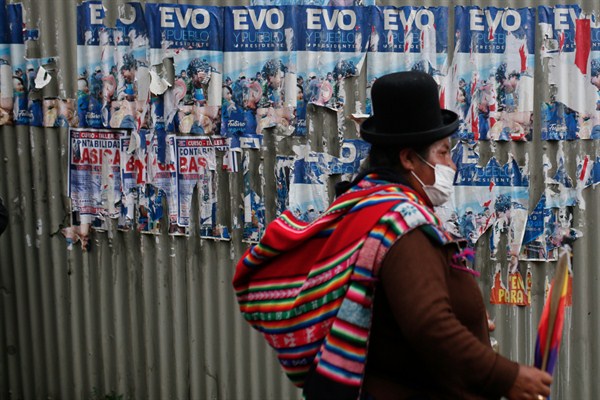When Bolivia’s Evo Morales resigned the presidency under pressure from the military and left the country amid widespread protests on Nov. 12, taking political asylum in Mexico, it sent shockwaves across Latin America. Morales’ fall comes at a time of ferment in the region—and what looks increasingly like a hinge moment in Latin American history.
Whether Morales was the victim of a coup or the perpetrator of an assault against democracy, rightfully deposed, remains the subject of heated debate. That continuing controversy is part of the push-and-pull of the tensions roiling Latin America, where the political tide appears to be changing, but no one is exactly sure in what direction.
Morales was one of the original members of the so-called Pink Tide, when leftist governments came to power across the continent in the early 2000s, led by Venezuela’s late leader, Hugo Chavez. As I wrote after October elections in Argentina, Colombia and Uruguay, I believe the region is entering a post-ideological phase, where pragmatic results will matter more to voters than ideological orthodoxy, whether right or left. But that in no way diminishes the fact that rival political forces are energized, battling each other with new vigor amid an unmistakable feeling that the landscape is shifting.

